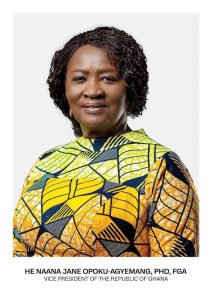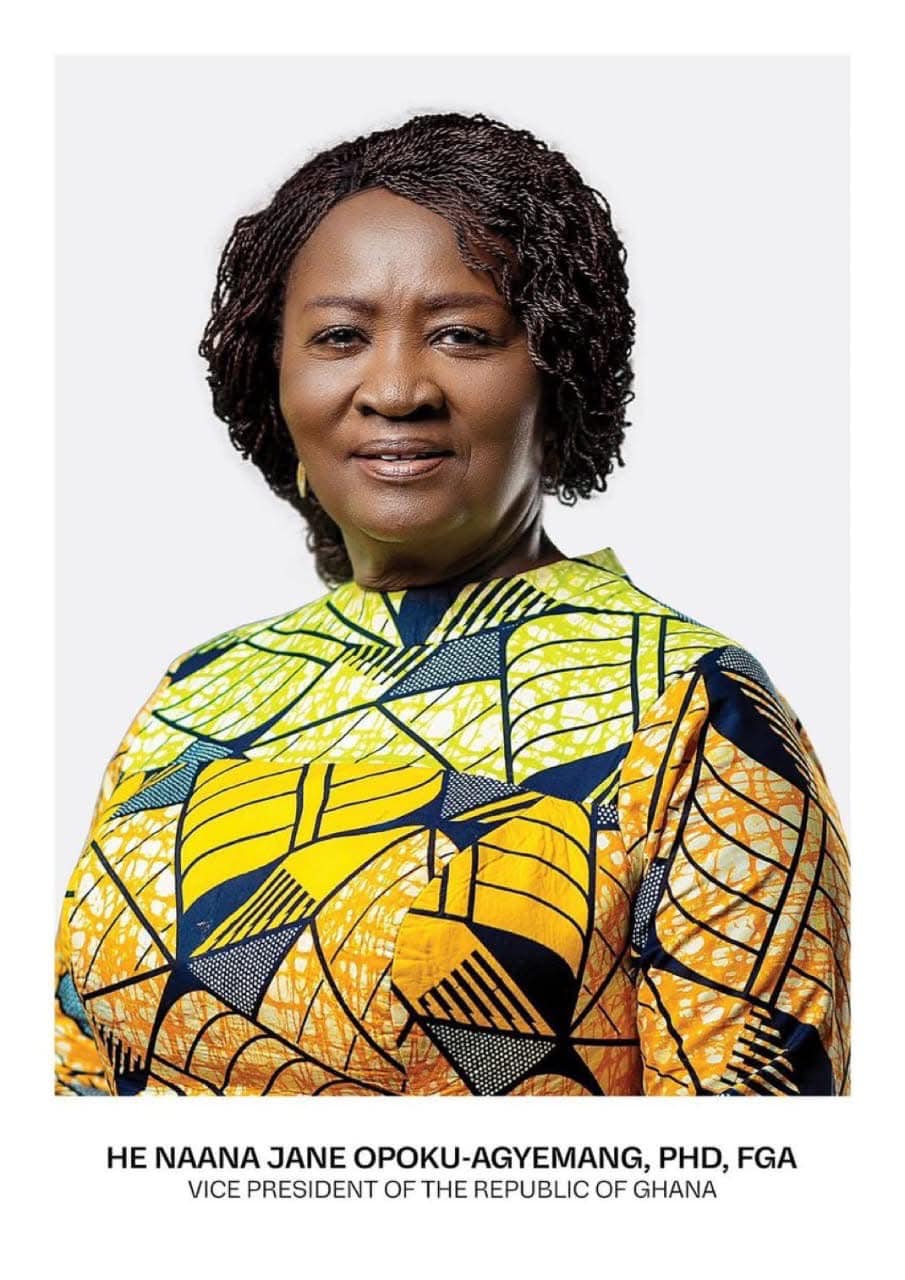
Accra, Ghana//-The ascent of Professor Naana Jane Opoku-Agyemang to the Vice Presidency was not just a political appointment; it was a seminal act of national symbolism.
President John Dramani Mahama, by choosing a woman of such towering academic and moral stature, cast her as the conscience of the administration, the definitive moral compass intended to guide the ship of state away from the reefs of ethical compromise and towards the safe harbour of social equity.
He explicitly entrusted her with the Sacred Trinity of the nation’s welfare: Education, Health, Gender, and Social Protection. This was her designated vineyard, where the nation expected to reap a harvest of inclusion, excellence, and care.
But today, the air is thick with a question that demands more than political evasion: Is the compass pointing true, or is the hand that holds it wavering?
Delivering on the sacred trust, Mahama’s mandate was crystal clear. It was a hyperbolic declaration of confidence, placing Ghana’s very soul, its human capital and social safety nets, under her direct supervision.
The Vice President, a celebrated scholar, was expected to apply the rigour of a professor and the nurturing heart of a mother to these critical sectors.
Ghanaians anticipated a radical detoxification of the educational system, a rapid elevation of healthcare accessibility, and an uncompromising pursuit of gender equity, the fulfilment of her own powerful promise to “hold the door open for those behind us.”
Yet, a shadow has fallen over this tenure, the unavoidable human reality of ill-health, which, for a period, necessitated her absence. This is the ultimate crucible for any leader: Does the frailty of the individual void the responsibility of the Office?
The answer is a stark constitutional echo: No. The commitment to the Republic is a seamless bond. When a general is indisposed, the army does not halt; it expects the clear deployment of delegated authority and visible action.
The public discourse, now heavily coloured by a perceived absence or a lack of visible momentum, is a direct consequence of this tension. If the “Syllabus for the Nation” is not being executed with clear, impactful strokes, the nation has every right to ask if the designated conductor is still holding the baton.
The legacy of the first female Vice President must transcend the mere metaphor of gender breakthrough and become the material reality of social transformation.
This brings us to the most critical, yet often neglected, pillar of modern governance: strategic communication. In the digital amphitheatre of the 21st century, silence is not merely neutral; silence is a corrosive absence.
The Vice President’s Office must recognise that good work left uncommunicated is, politically, work undone.
Her silence, while perhaps borne of a professional’s humility or a focus on deep, substantive work, is an allegory for an unmapped journey. The citizen needs not just results, but the narrative of the struggle, the strategy, and the triumph.
Her office requires a dedicated, proactive mechanism to articulate
The legacies being built, what specific measurable milestones is she anchoring in the education, health, and gender sectors that will outlast the current administration?
Is it a constitutional firewall for social spending? A revolutionary curriculum reform? These must be communicated with the clarity of a constitutional amendment.
Citizens must be shown, in granular detail, the direct impact of her leadership on their lives. Where has her influence steered policy?
How is her presence as a female leader demonstrably accelerating the Affirmative Action agenda, transforming the very structure of the civil service?
Strategic communication is the lifeblood of political trust. It is the proactive antidote to rumour, speculation, and the damaging narratives that swirl around her health and perceived visibility.
The Office must be a relentless broadcaster of her activity and her intellectual engagement, ensuring the national faith in her capacity is not allowed to atrophy from neglect.
As the Roman aphorism suggests, “What is not seen is not believed.” For Professor Opoku-Agyemang to fulfil the historic promise of her office, to solidify her position not just as a figurehead, but as the Chief Engineer of Ghana’s Social Renewal, her actions must be amplified.
Her Office must cease to be a quiet academic common room and become a resounding public forum.
Her final legacy, beyond being the first female Vice President, must be defined by the unwavering clarity of her accomplishments and the unassailable trust forged through transparent, strategic engagement.
The time is now for the woman who scaled the academic mountain to plant her flag visibly and irrefutably on the political summit, proving once and for all that the moral compass is indeed navigating the nation towards its promised land.
She cannot be, and should not be another Vice President Mahamudu Bawumia, who was all over the place but with little to show in the area he boasted of having great competence, economic management.
She must visibly demonstrate leadership in education, health and women and children development space, and her leadership and legacies must be strategically communicated to inspire young girls and young women that her selection by President Mahama was not merely to tick a gender inclusiveness box in governance. but to make a nation-transforming statement.
By Raymond Ablorh
Raymond Ablorh is a Policy, Research, Strategy & Communications Consultant, concerned with the enduring covenant between leadership and citizens in Africa.


